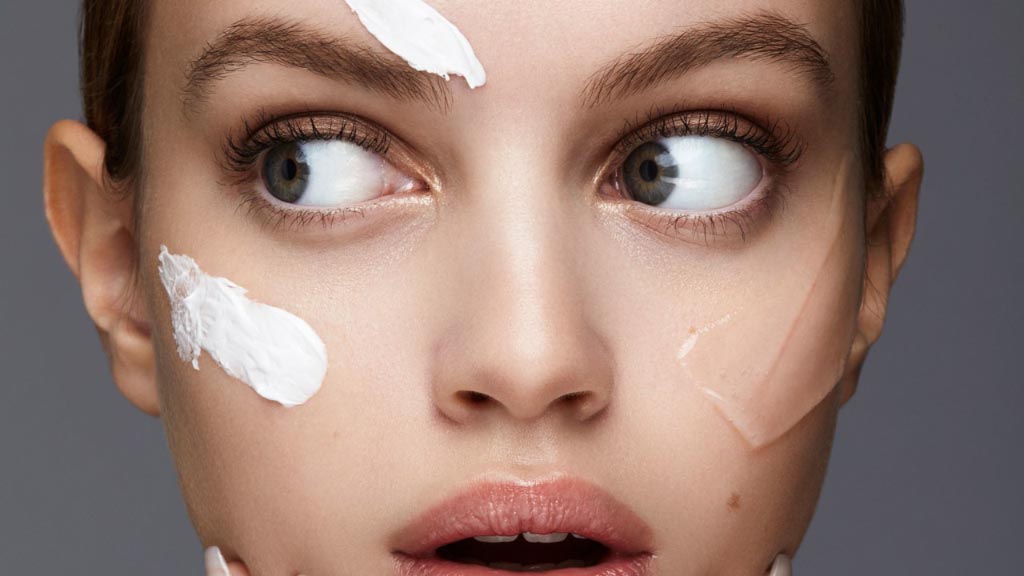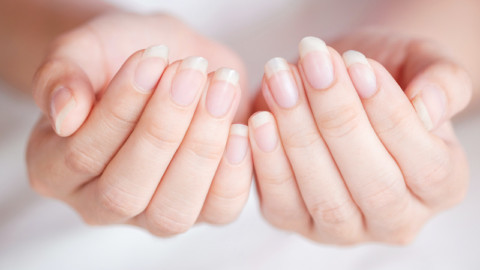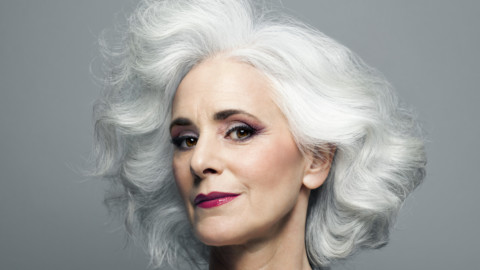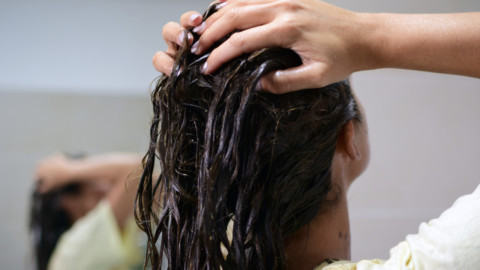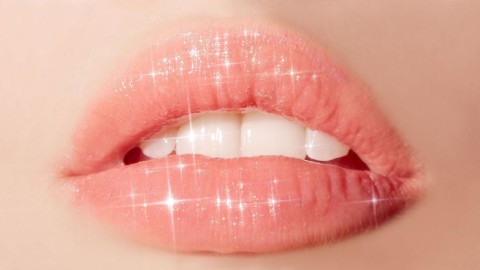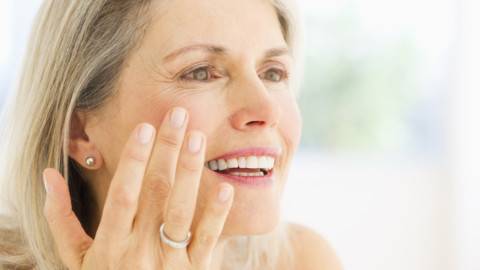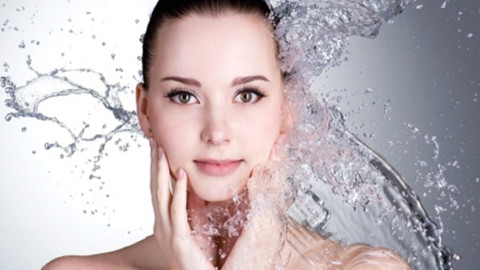We all have our spoils — wine, tanning, late-nights. But everything in moderation, right? EXCEPT, it seems, for the most tempting vice of all: makeup primer. It’s not hard to understand why we fall in love with this skin-smoothing puddy of sorts — it looks flawless. So if you’re part of the primer cult, you might be devastated to learn that your holy grail product may be bad for your skin. Let’s get the truth, shall we?
To guide you along, we’ll review the pros and cons of different primers, sorting the best from the worst. Follow along, ladies.
A dermatologist’s view on primers
Here’s a splash of reality from leading Dermatologist Debra Jaliman, MD. “..Makeup primer, same as any goop left on a moist surface, will collect bacteria, fungus and other creepies you’d cringe to see under a microscope. But don’t forsake your favorite primer just yet!
Not all primers are equally bad for your skin. Like men, there are decent ones out there– the kind that won’t age you or cause breakouts (as much).
Type 1: Silicone primers
![]() There’s a classic debate about primers: do they clog your pores? Although there’s nothing inherently terrible or toxic about silicone, it can still stress out your skin.
There’s a classic debate about primers: do they clog your pores? Although there’s nothing inherently terrible or toxic about silicone, it can still stress out your skin.
Technically, primers are non-comedogenic, meaning they won’t gunk up your pores, but rather, sit on your skin and create a smoothing veil. But appearances can be deceiving. Since silicone primer is thick in texture, “it blocks the flow of oxygen to your skin. If you have acne-prone skin, it also traps blemish-causing bacteria,” explains Dr. Jaliman. As your skin collects sweat and dirt throughout the day, all that grossness gets stuck under the silicone barrier.
Type 2: Oil-absorbing primers
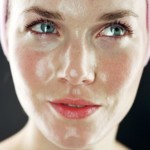
Now some of you might be thinking, “I use an oil absorbing primer, so I’m safe.” Ehhh, not quite.
While you may enjoy a matte complexion, your skin’s tolerance to the primer’s drying effects depends on your sensitivity level.
The drawbacks
Oil-absorbing primers are heavy and contain skin-drying agents, like silica or talc, which can cause inflammation, patchiness and dullness. According to Beauty chemist Ni’kita Wilson, “If you have acne-prone or oily skin, then you should be more aware of what your skin type can handle, but the primer in itself isn’t entirely responsible for clogged pores.”
So in essence, there’s no golden rule for finding the right primer. The trick is trial and error, combined with some informed decision-making.
Type 3: Hydrating silicone primers

Are hydrating primers any better? Not a whole lot, unfortunately — other than being lighter, dewier but often times, greasier than the generic versions. If you’ve got dry skin, the extra moisture can help your makeup stay better and longer, but there’s a hitch.
The drawbacks
Hydrating or not, if you’ve got sensitive skin, it won’t love silicone. The heaviness of the layer can leave your delicate skin congested– same as a regular primer. Plus, hydrating primers have a slew of synthetic additives, colorless liquids that create a gooey feel.
These lab-made ingredients are forms of glycerin, usually hidden by code names like PEG or tongue-twister words, like Triethylene Glycol or Polyethylene Glycol.
Is glycerine bad for your skin?
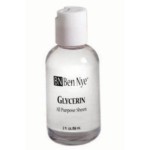
Glycerine is a tricky matter. As German Dermatologist and Allergist, Joachim W. Fluhr explains, glycerine has two main purposes: to act as an emulsifier— a watery filler that feels rich— and to act as a surfactant— a slippery agent that doesn’t soak easily into the skin.
Although these agents feel smooth and luxurious, they can have unpredictable effects on the skin.
Glycerine pros
Let’s have the good news first: glycerine does create a richer skin texture. By absorbing moisture from the air into the skin’s outer layer, glycerine provides a “protective effect against the dehydration”, reports Dr. Fluhr. As a result, your skin can hold water more effectively, helping maintain a healthy-looking complexion.
Glycerine cons
Bad news is that if there’s less than 65% humidity in the atmosphere, glycerine can draw moisture from the deeper layers of the skin toward the surface. Your skin will be dehydrated from the inside, even when the outside appears moist, reveals Dr. Fluhr. So unless the primer includes natural emollients, like botanical oils, the skin can get dry.
And that brings us to the next problem: oils can clog pores. So with much frustration, you’ll realize that there’s always a catch with primers.
Type 4: Water primers
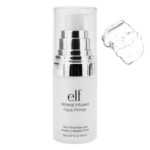
The closest you may get to a “healthy” primer is a water-based version. The Dermreview.com recommends using a water primer containing “plant extracts to soothe the skin, vitamins to nourish, and antioxidants to protect the skin.” If your skin is oily or acne-prone, a water primer tends to be much gentler option. Breathable and light, these formulas do not contain silicone and are less greasy.
The drawbacks
Although water primers aren’t heavy like silicone primers, they still contain glycerine. While not a major con, water primers also have a variety of other junk such as chemical preservatives and alcohols. Basically, you’re getting a comparable formula to the silicone version, just with different ingredient names and a much lighter texture.
Nevertheless, if you find your skin is especially dull, you can add a boost of shine with a water primer with illuminating flecks. As the Dermreview.com explains, since dry skin can typically appear lackluster, using an illuminating face primer promotes the look of brightness and radiance to skin. The bits of light-reflecting pigments help your complexion catch more light, helping to blur away flaws and unevenness.

Much like an evening of cocktails, primers are that special spoil that’s oh, so good. But be smart about your priming. Pick your poison wisely, take days off and never have too much at once. Together with a balanced, deep cleaning routine, you can give your skin the much-needed break it needs to restore. And finally, a solid night of beauty sleep is the simplest remedy of all. With this balanced approach, primer won’t be (too) bad for your skin.

